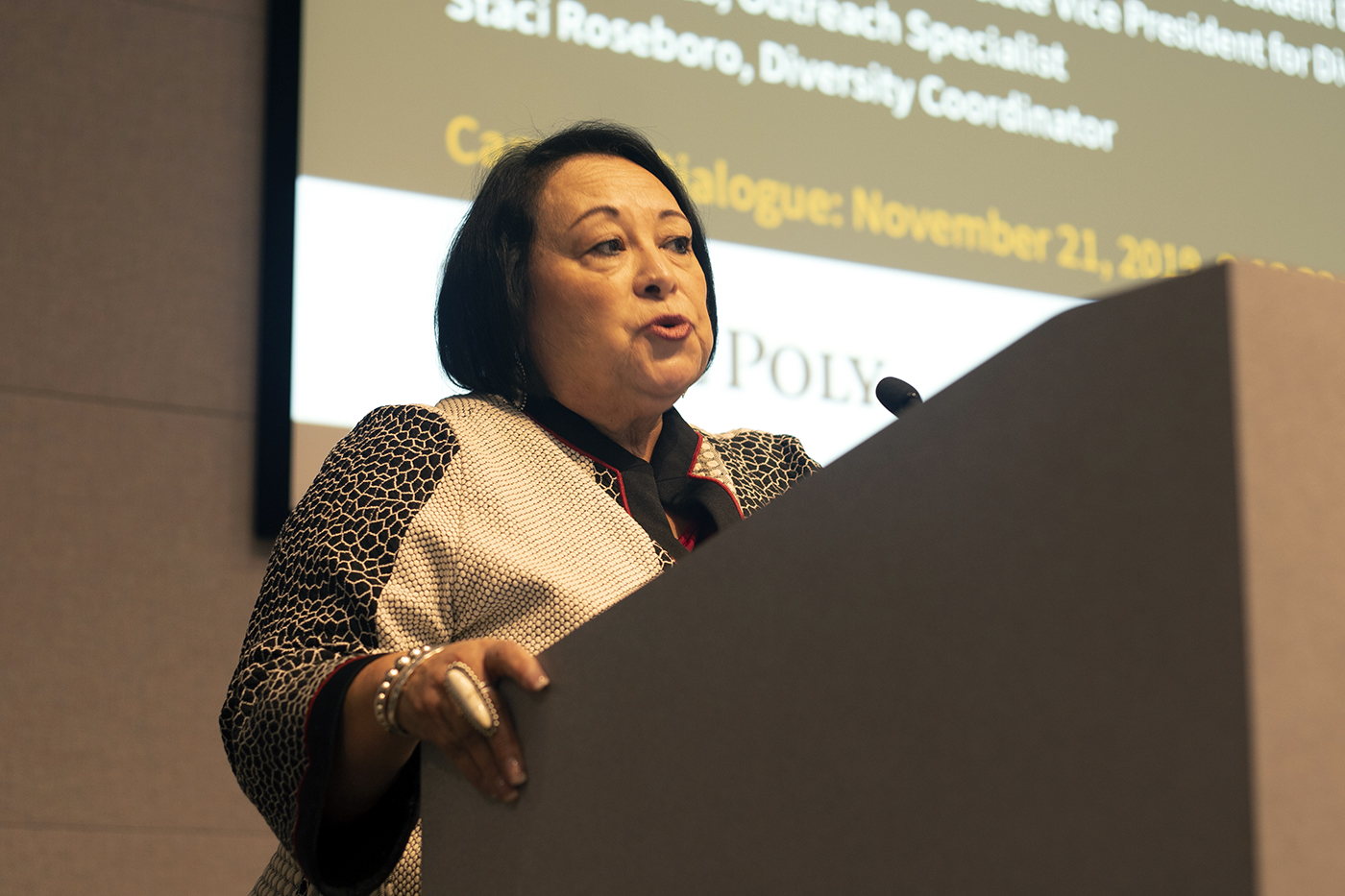The Office of University Diversity and Inclusion (OUDI) at Cal Poly hosted the first dialogue about the results of the Cal Poly Experience (CPX) survey Thursday, Nov. 21.
At the meeting, Interim Associate Vice President for Diversity and Inclusion Julie Garcia outlined the three main goals in OUDI’s action planning process: recruiting and retaining a diverse body of students, staff and faculty, fostering a campus climate where individuals can thrive and implementing a curriculum and co-curriculum that enables students to work in a diverse world.
OUDI Vice President Jozi DeLeon led the presentation along with Garcia and Diversity and Inclusion Outreach Specialist Ryan Adserias. DeLeon opened the meeting by addressing the importance of promoting inclusivity from within the Cal Poly community.
“This work is going to require all of us to become engaged, and even though we have a room full of people, it’s going to require everyone, the whole university, to become involved,” DeLeon said during the presentation. “[Involvement] needs to happen locally, and then it needs to happen broadly across the university. But we also know that needs to happen in our community.”
The event was open to staff and students and structured in a way to promote audience interaction and engagement. Attendees sat at various tables set up in the room, allowing them to converse face-to-face with the other attendees at the same table, as opposed to auditorium-style seating where the chairs all face the front.
The campus dialogue incorporated self-reflection activities that prompted attendees to draw on their own experiences of feeling included, what factors influenced the inclusion and how Cal Poly could replicate those factors on campus. Another activity prompted attendees to reflect on how to develop their own skills and knowledge of diversity, equity and inclusion. They were encouraged to share their responses with their table and then with the audience as a whole.
“One of the things that we’ve had people say to us is that they feel like they haven’t been part of the conversation, they haven’t been part of the planning, things kind of happened outside of their voice,” DeLeon said. “This [dialogue] was to provide that opportunity. And so we want to make sure that as we move forward, we continue to get the voice of people across campus.”
However, some students said they felt the survey only shared what Cal Poly has known for years.
Anthropology and geography senior Sophia Florez and electrical engineering senior Alejandro Bupara are co-coordinators of Students for Quality Education (SQE), a social justice organization that led demonstrations earlier in 2019 at Cal Poly.
Last year, SQE’s demands campaign advocated for increased funding for the centers for marginalized students on campus. SQE continues to advocate for additional funding this year.
“That’s one thing that I want to emphasize – students have been identifying the need for increased funding for these spaces for years now,” Bupara said. “Yes, the CPX survey gave them data . . . but that’s something they should have known already. And again, that is something that student groups have been saying for years and years and years. And so instead of spending the money on a survey like that, that could have gone directly towards priorities that students have already identified.”
When asked about alternatively using the money that funded the CPX survey to fund the existing centers for marginalized students on campus instead, DeLeon explained how the university needed to conduct a campus climate survey. According to DeLeon, the last campus climate survey was conducted six years ago.
“My perspective is that it’s both/and — it’s not either/or,” DeLeon said during the forum. “I think it was critically important for us to get the data and to be data-driven in our approaches, and to determine what our priorities were on the basis of the data . . . That is certainly our goal within OUDI, that we . . . support the work that’s already happening on the ground.”
CPX campus dialogues will continue through January 2020, along with several other initiatives, like OUDI office hours in December 2019 and action plan coaching and support in February 2020.

